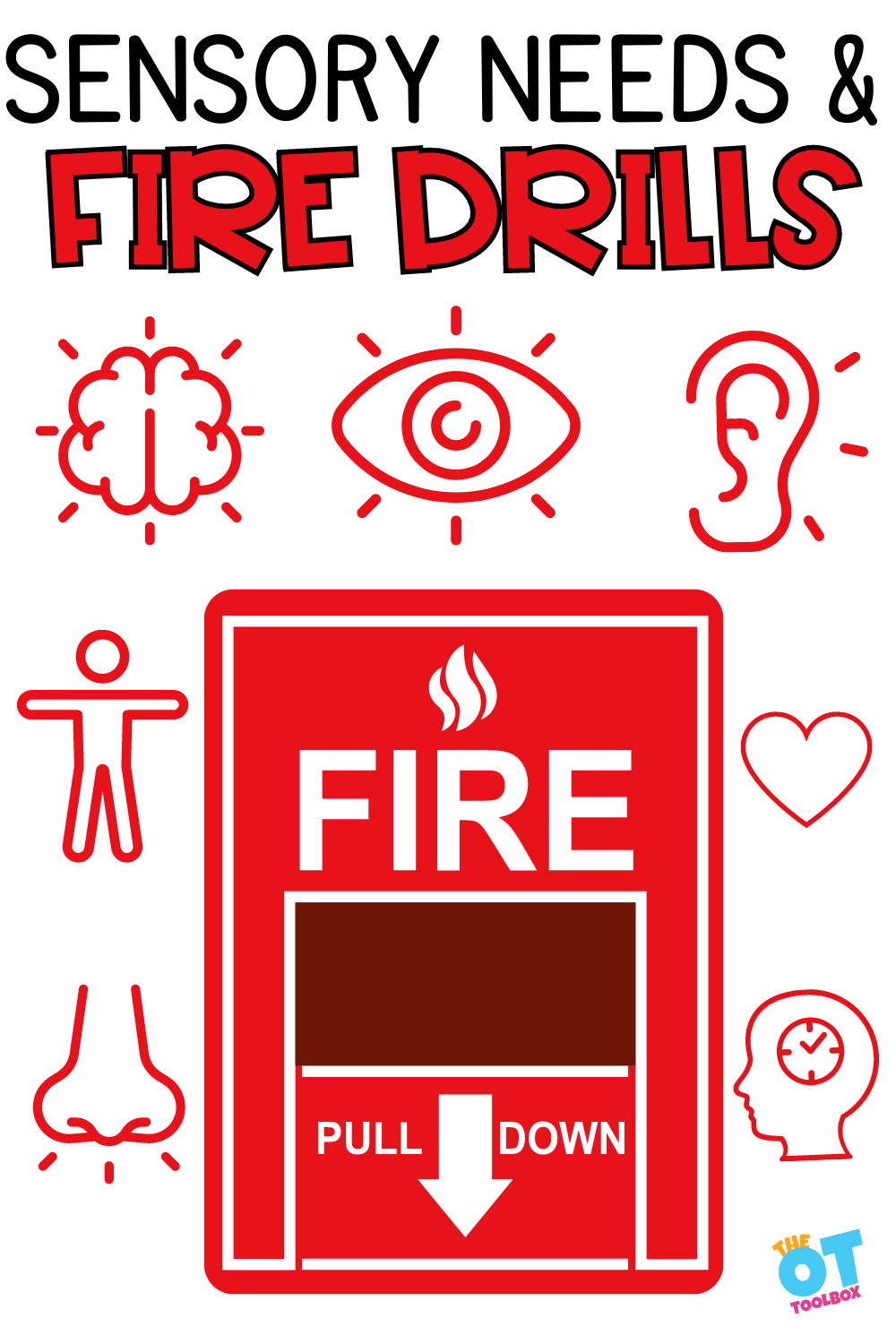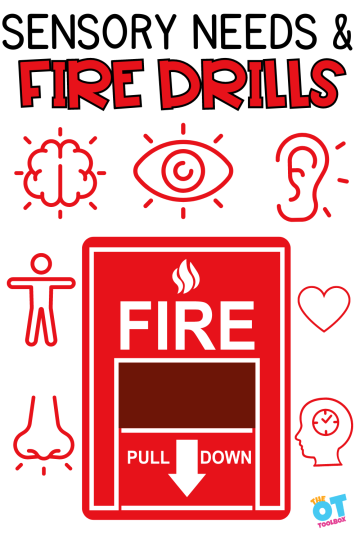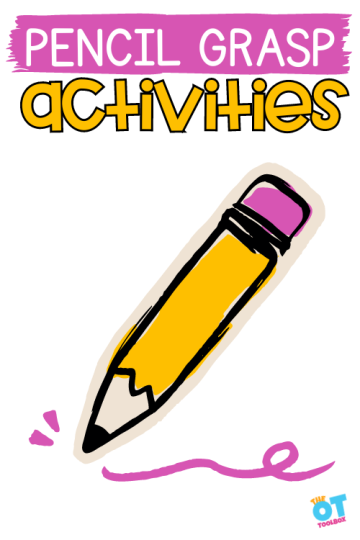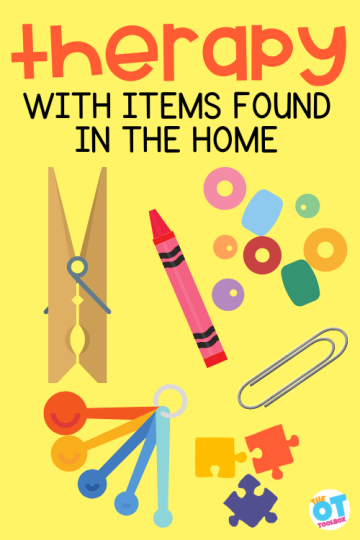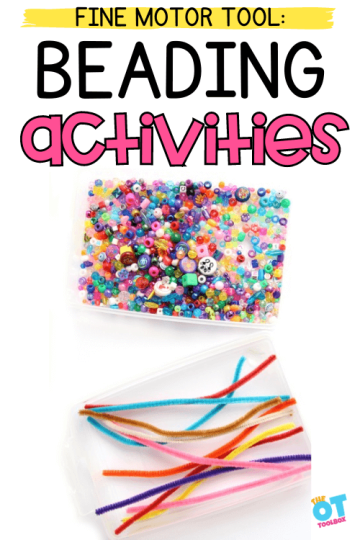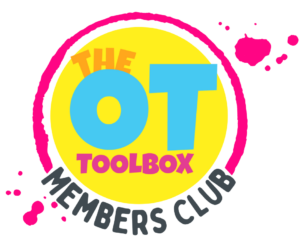Here, you will find tools and information for adults with executive function disorder and executive functioning issues that impact day to day tasks in adulthood. For adults, executive functioning skills are a part of everything we do. The ability to use these skills with mental dexterity impacts the way we pay attention, focus, plan, and prioritize. Here, you’ll find strategies that can impact executive functioning needs so that organization, impulse control, planning, time management, and other executive functioning skills are improved and regulated in daily life tasks.
Adults with Executive Function Disorder
Now you might be thinking, “Executive function disorder?! I don’t have a disorder!” And that is probably the case in most instances for those reading this article. However, there are many of us who struggle on a day to day basis with things like getting started on chores or problems (task initiation), staying focused (attention), losing things constantly (organization), getting out of the house on time on a regular basis (task completion), and a variety of other challenges that impact our lives and generally stress us out. These are not the components that define a disorder, but they are executive functioning challenges that impact day to day life. It’s my hope that this resource offers tools to make the overall wellbeing better, and to offer tools for adults with executive function challenges easier!
Let’s break down executive functioning skills in adults and take a look at how things like focus, attention, organization impact life skills in adulthood.
My daughter has battled Executive Function Disorder all of her life, but right now, it is really preventing her from moving forward with her life. Things like completing a task, making decisions, time management, and projecting ahead are SO HARD. Is there anything that can help my adult daughter struggling with executive functioning disorder?
Does this sound at all familiar? So often, executive functioning challenges are present in adults but we don’t stop and think, this isn’t how things have to be. In fact, there are everyday challenges that are very difficult for adults with executive functioning needs. Things like organization, planning, and flexible thinking can be a real struggle that impacts family life, work life, personal relationships, and the things we need to do every day.
As kids with these challenges move into adulthood, some areas that we might expect to develop just never seem to change. It’s not uncommon; the fact is that executive functioning skills are a very broad set of skills. Forgetting things, difficulty with inhibiting behaviors or actions, trouble with planning big projects, or staying organized in the daily life of an adult…everyone deals with these challenges at one time or another.
The challenges become a problem when social, emotional, intellectual, or organizational aspects are disrupted. A person’s career/job/family life/etc. can be devastated by difficulties with executive functioning skills.
Difficulties with the higher-level cognitive skills that make up executive function can impact adults by limiting one’s ability to “connect the dots” and can impact other areas of executive functioning as well.
For the adult with executive function disorder, challenges can present in many different ways. There may be no trouble with impulsivity or attention struggles, however other mental skills can be quite difficulty. Sometimes, seeing the “big picture” is the problem. For others, it’s just making decisions. Still others lack time management and have difficulty with multi-tasking.
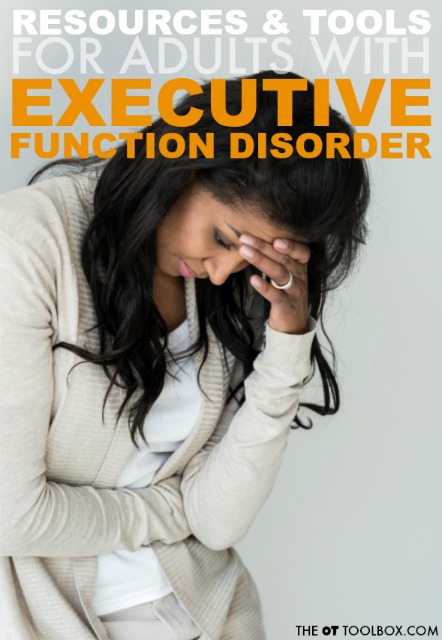
Executive Function in Adults
Here’s the thing: There is a lot of information out there for kids who are struggling with these areas. However, for most of us, executive functioning skills are still developing well into the adult years.
Executive function in adults is developmental. In fact, executive function skills don’t typically develop until the early 20s. Development of executive functioning skills occurs up through the college years (and beyond), making that transition from the home setting of high-school into a college dorm very difficult for many.
So, for some adults who are challenged in these areas, there can be simply a few accommodations or strategies put into place. Simply using a few set of tools designed to address these needs can allow for improved skills like organization and time management which are then carried over to other areas.
Making changes to executive function in adults can mean looking at the big picture.
Adults need to do adult things, right? Areas of life skills where executive functioning skills impact “getting things done” include:
- Obtaining a job
- Maintaining a job
- Creating personal relationships
- Maintaining personal relationships
- Sustaining a clean and safe home
- Completing large home projects (inside the home and outside the home)
- Shopping
- Paying bills
- Transporting oneself to work, the community
- Making healthy choices
- Cooking and cleaning up food
- Taking medications
- Contributing to the community
- Caring for children
When you think about the life changes that happen between high school graduation to accomplishing all of these high-level executive functioning skills, you can see how there is a developmental change that occurs between the ages of 18-25.
Executive Functioning Skill Components
In order to complete high-level thinking and planning tasks, adults require development of several executive functioning areas:
- Planning
- Prioritization
- Attention
- Organization
- Task Completion
- Task Initiation
- Problem Solving
- Working Memory
- Self-control
- Flexibility
- Self-awareness
For other adults who may have always struggled with seeing the big picture, planning tasks, or staying focused on a task, this is the typical development for that individual. In other words, some adults may be gaining improvements and strengthening the skills they’ve got, just at a lower level than another adult. In these cases, strategies and tools can make a difference here, too.
Adults and distractibility
We are distracted by many things, and that level of distractibility is impacted by advances in screens, stimuli around us, faster lifestyles, more options, and increasing availability of information.
Some good resources to check out on adults and distractibility include:
- There is research on the impact of screen time, and the role that it plays on executive functioning skills.
- Symptoms of too much screen time
- The connection of attention and sensory needs
- Physical exercise and wellbeing
Below, you will find curated information from around the web that will be instrumental in making an effortful improvement in executive functioning needs. Read through this information and use it as best fits the needs you or an adult with executive functioning challenges might be experiencing.
Remember that everyone is different in their strengths, weaknesses, needs, interests, and experiences. This information is not intended to treat or address specific needs, but rather, as educational material. Seek professional help when needed.
Adult Executive Functioning Disorder
The is fact that adult executive functioning impacts everything we do as adults. Take a look at this adult executive functioning skill checklist.
Some of these problem areas for adult executive functioning issues may include:
- Difficulty making plans
- Difficulty making decisions
- Time management
- Trouble with organization
- Difficulty keeping important papers organized
- Trouble prioritizing
- Poor emotional control
- Difficulty with flexible thinking
- Trouble thinking “on the spot”
- Trouble using a schedule
- Trouble getting out of the house on time
- Trouble with impulsive buys
- Difficulty paying bills on time
- Difficulty with losing keys or important items
- Trouble following through with plans
- Trouble picking the most important tasks
- Trouble doing the important parts of tasks first
- Trying to do too much at once
- Constantly running late
- Difficulty listening to a person talking without thinking of other things
- Easily frustrated
- Forget the last step/steps in a multi-step task
It’s easy to see how the list above can look so different for different people, especially when considering aspects such as job requirements, family obligations, outside situations or other issues that may make a difference in the occupational performance of an individual.
Executive Functioning Skills and Emotions
Executive functioning kills and emotional regulation are closely related. Playing a role in the ability to function and complete day-to-day tasks is the role of the limbic system when it comes to executive functioning skills. Managing emotions, and emotional regulation can greatly impact the adult with executive function challenges.
These structures and their hormones control functions such as emotions, behavior, motivation, sleep, appetite, olfaction, stress response. In adults, the role of the limbic system impacts household tasks completed, grocery shopping, paying bills, getting to work on time, caring for children and other daily life tasks.
This is really interesting, because you may connect the dots with this list and see that social emotional skills, executive functioning, inner drives, and sensory processing (including the sense of smell and interoception) all centered in one place in the brain! (This is not to say that these are the only places in the brain that operate these functions as well.) All of this can be considered when addressing needs using a specific sensory diet for adults that center on the areas of needs for the individual struggling with executive functioning skills.
You can see how the role of emotions and regulating daily stressors impacts attention, organization, task initiation, task completion, and problem solving.
Generally speaking, the limbic system is the emotional brain but this piece of the EF puzzle has a huge role for adults who are expected to act…like adults!
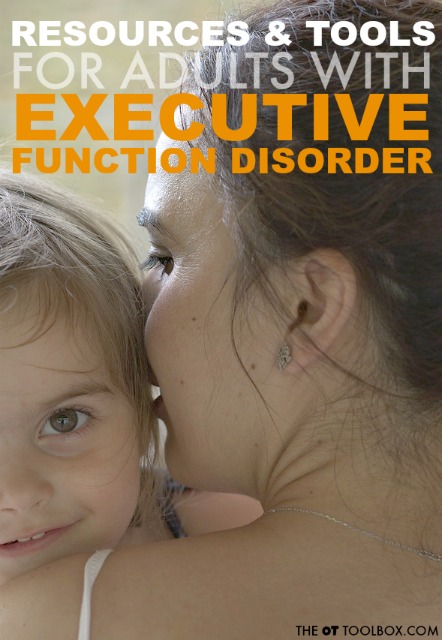
Tips for adult executive functioning
Some easy to apply tools can impact executive functioning challenges in adults. These strategies include low-tech or high-tech strategies such as:
- Use a paper planner or calendar to keep track of obligations
- Set up a filing system to keep track of and manage mail and important papers
- Use highlighters and colorful sticky notes to make a visual organization system
- Use apps to stay organized. Here are some Alexa Skills that can help with executive functioning skills like organization, etc.
- Set up calendar reminders on a phone or smartwatch
- Set up automatic payment plans for bills
- Brainstorm routines and weekly/daily tasks and strategies to make decision-making less stressful and easier
- Think through and visualize the day or week ahead and predict any challenge that may arise
- Create routines and calendars for ongoing tasks
- Create brain dumping lists for big tasks and set goals with specific dates and timelines
- Use a daily journal to track each day’s events. The Impulse Control Journal can be used by adults as well as kids. The “look” of the journal is not childish, and has many components that can translate to an adult’s needs in promoting organizational, time management, etc.
Resources for Adults with Executive Function Disorder
Here are some symptoms of executive function disorder in adults. Some of the symptoms include time blindness, self-motivation, and an inability to keep future events in mind. Do these symptoms sound familiar?
One symptom that is mentioned is the regulation of one’s non-verbal working memory, or our inner critic. This is an area that can be detrimental to some, especially when self-conscious of weaknesses that impact life choices or struggles. Here is one simple strategy for self-talk in kids, but can be morphed into an age-appropriate version for adults.
If an adult or someone who is trying to help an adult with executive function needs would like to look into testing, here is a self-test that may help with self-awareness of the problems that can easily be addressed through strategies and tools. Use this information to move forward with professional help if necessary.
Another article that can “bring to light” some of the concerns with executive functioning needs is this article about the day in the life of an adult with EFD. It really highlights the challenge of managing other people’s schedules, the workplace juggling act, and managing relationships.
Time management tools, including simple planners and time management apps can be helpful. Here are more tools for addressing time management and other tools such as motivation, scheduling, prioritization, and other challenges.
This article discusses ADHD, but a lot of the tips and strategies can carryover to any need with planning ahead.
Finally, remember that many of the executive functioning strategies that are out there and presented in books can be used just as easily and seamlessly by adults. The same strategies that work for keeping track of homework tasks by a child can be used by an adult who needs to manage bills and important papers.
How to plan and prioritize tasks
The Impulse Control Journal is your guide to addressing the underlying skills that play into trouble with planning and prioritization.
The journal is an 80 page collection of worksheets and prompts to discover what’s really going on behind executive functioning skills like planning, organization, prioritization, working memory, and of course, impulse control.
While the guide was developed for students of all ages, this printable workbook is perfect for adults, too. It can help you discover strategies that make a real impact for all of the skills needed to get things done.
Here’s the thing; Everyone is SO different when it comes to struggles related to executive functioning and everyone’s interests, needs, challenges, strengths, and weaknesses are different too. All of these areas play into the challenges we see on the surface. And, this is where the Impulse Control Journal really hits those strengths, weaknesses, and challenges where it matters…in creating a plan that really works for kids of all ages (and adults, too!)
Check out the Impulse Control Journal, and grab it before the end of February, because you’ll get a bonus packet of Coping Cards while the journal is at it’s lowest price.
Read more about The Impulse Control Journal HERE.
The Impulse Control Journal has been totally revamped to include 79 pages of tools to address the habits, mindset, routines, and strategies to address impulse control in kids. More about the Impulse Control Journal:
- 30 Drawing Journal Pages to reflect and pinpoint individual strategies
- 28 Journal Lists so kids can write quick checklists regarding strengths, qualities, supports, areas of need, and insights
- 8 Journaling worksheets to pinpoint coping skills, feelings, emotions, and strategies that work for the individual
- Daily and Weekly tracking sheets for keeping track of tasks and goals
- Mindset,Vision, and Habit pages for helping kids make an impact
- Self-evaluation sheets to self-reflect and identify when inhibition is hard and what choices look like
- Daily tracker pages so your child can keep track of their day
- Task lists to monitor chores and daily tasks so it gets done everyday
- Journal pages to help improve new habits
- Charts and guides for monitoring impulse control so your child can improve their self confidence
- Strategy journal pages to help kids use self-reflection and self-regulation so they can succeed at home and in the classroom
- Goal sheets for setting goals and working to meet those goals while improving persistence
- Tools for improving mindset to help kids create a set of coping strategies that work for their needs
This is a HUGE digital resource that you can print to use over and over again.

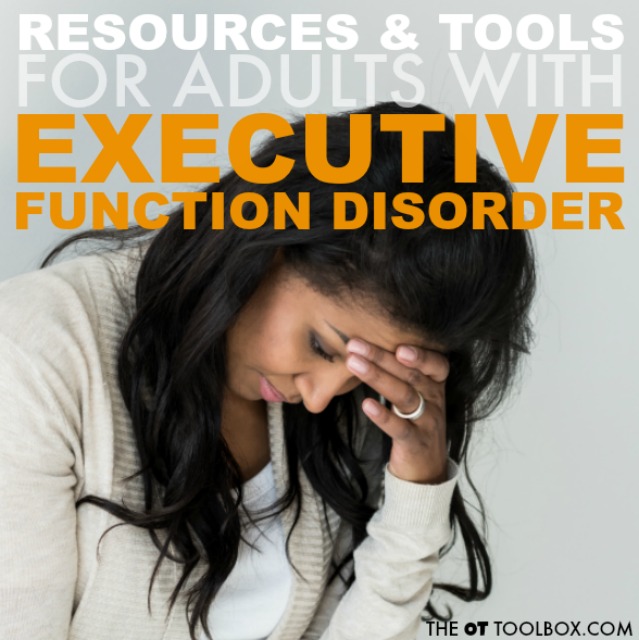
What does executive function disorder look like in adults?
Things like distraction, time blindness, distractibility, and attention or organization issues can be common in adults with executive function disorder. Here are other signs of EF issues in adults:
- Time blindness– being unaware of the passing of time (see below for more information)
- Trouble remembering names
- Losing or misplacing everyday items such as purse, wallet, keys, phone
- Difficulty completing multi-step tasks such as laundry
- Late for appointments consistently
- Difficulty breaking tasks down into steps
- Trouble completing tasks that need done daily such as hygiene, grooming, making the bed, etc.
- Forgetting to pay bills month after month
- Consistently forgetting to take out the trash on trash day
- Misplacing items
- Unable to multitask
Can executive function be improved in adults?
This can be a difficult question to answer because of the multitude of way’s that an executive functioning difficulties present themselves in adults. There are just so many functional tasks that can be broken down into functional participating.
When taking into consideration the skill areas that make up executive functioning skills, addressing the areas of working memory, attention, organization, prioritization, planning, self-motivation, emotional regulation, problem solving, inhibition…there are many areas to work on when it comes to improving executive functioning skills in adults.
This is to say, however, that it is possible to make habit changes, adaptations, and cognitive, behavioral changes that improve the ability to complete tasks. In the ault with executive functioning disorder, working on small steps and through tools such as lists, organizational changes, executive function coaching, apps, or progress planners, it is possible to make positive changes in the tasks that are impacted by executive functioning issues.
Here are some action plans that can be used to improve executive functioning skills in adults:
- Use lists
- Work on one task for the day
- Use colored markers and a planner to organize how time is spent
- Create a morning, evening, and study routine
- Have clear goals
- Plan ahead for the day by working off an organizer and checklists
- Use a time management app to reduce distractions
- Work on saying “no” to to distractions
- Manage stress using coping strategies, self-regulation, exercise, sleep, nutrition
- Exercise regularly
- Develop working memory strategies and mental flexibility
- Problem solve
- Work on self-motivation skills
- Write a letter to future self as a strategy to visualize a future you would like to achieve
- Identify strategies to cope and regulate moods better
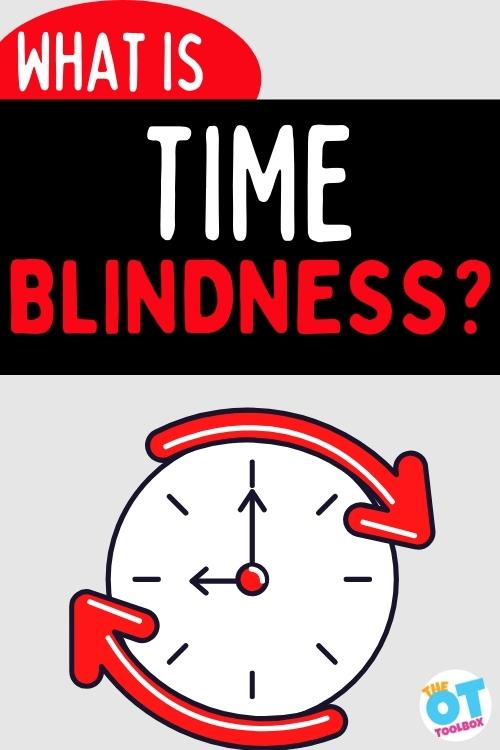
What is time blindness?
Time blindness refers to the concept of being unaware of time passing.
In most cases, adults and teens (as they develop) are aware of time and have the ability to track its passing. This allows us to move through the morning routine to get out the door on time. It allows us to complete tasks and make it to appointments. It allows us to complete each step of a meal preparation so that dinner is on the table at a reasonable time.
You may recognize time blindness by recognizing that “time got away from you”. We all have felt the impact of time blindness when we say “time flies”.
However, some individuals have a difficult time with time awareness, and “time blindness”.
Time blindness becomes an issue for some individuals when they are consistently late leaving the house for appointment, or when late from returning from a break. Time blindness, when severe, can impact health, social participation, responsibilities, or safety.
Some exaples of time blindness include:
- Missing appointments
- Taking too long to get started on a task
- Taking too long to get ready in the morning
- Sitting on a phone or device without realizing how much time has passed (This is a BIG one!)
- Not realizing how much time a task will take to complete (such as meal preparation)
- Getting “sucked into” a leisure activity such as watching Netflix, playing a game on a device, watching YouTube, or talking with friends
How to Deal with Time Blindness
While time certainly does fly, we can make some simple changes that deal with time blindness that might impact function, safety, and participation in daily tasks and responsibilities.
- Use a timer. The timer app on your phone can be used for a simple task or to use during recreational tasks such as watching YouTube videos. When the timer goes off, turn off the videos and move on to what you need to get done.
- Keep track of how long things take and write it down in a planner or journal. Refer back to that time tracker when planning a day.
- Use a planner with time slots for the day. Mark down appointment times and mark off how much time it takes you to drive to the location, get ready, eat meals. Be sure to add a small cushion time in your time planner for things like gathering a purse, putting on shoes, or gathering your keys and phone.
- Use a clock- wear a wrist band so that the time is always on you. There are smart watches available that offer a vibration as a physical notification.
- Make the clock app on your phone show up on the screensaver face of your smart phone.
- Break a larger task such as laundry or meal prep into smaller tasks.
- Create a system. Tasks such as shopping for groceries can fall into the time blindness category. Set up a shopping system and then a putting away the groceries system. Use what works for you.
- Use a Pomodoro app to keep track of how long you are working on a particular task. Use the break period, and then get back to the task.
In summary, addressing skill areas such as organizational skills, time-management skills, focus, memory, goal-setting abilities, and general well-being can have a huge impact on adults struggling with executive function challenges.

Colleen Beck, OTR/L has been an occupational therapist since 2000, working in school-based, hand therapy, outpatient peds, EI, and SNF. Colleen created The OT Toolbox to inspire therapists, teachers, and parents with easy and fun tools to help children thrive. Read her story about going from an OT making $3/hour (after paying for kids’ childcare) to a full-time OT resource creator for millions of readers. Want to collaborate? Send an email to contact@theottoolbox.com.

